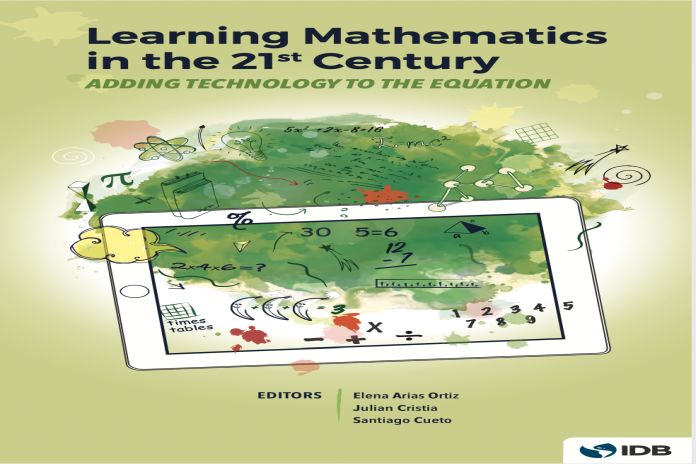WASHINGTON, USA – Technology can help narrow the mathematics learning gap in Latin America and the Caribbean if leaders and educators include teacher training and well-focused tools in their programs, according to a study by the Inter-American Development Bank (IDB).
Technology is taking center stage in teaching during the pandemic, with millions of students depending on computers and the internet to acquire the knowledge they need.
According to the new book Learning Mathematics in the 21st Century, Adding Technology to the Equation, students in the region perform poorly in math, language and sciences, with math scores coming in at the bottom. A full 63 percent of 15-year-olds fail to attain a basic, level 2 in math competency scores, compared with 50 percent in science and 46 percent in languages.
The authors identify multiple reasons for the gaps, including a lack of adequate learning materials, reduced support for kids outside of the classroom and a limited use of teaching techniques use of math to solve real-world problems.
“Computer assisted learning could help both students and teachers, and this is even more urgent in the era of COVID-19 pandemic,” said Elena Arias, a senior education specialist at the IDB. “Nonetheless, we cannot take a simplistic approach toward technological solutions. We need to use technology to promote critical thinking among our students. Technology cannot be an end in and of itself.”
“The main message for educators is that they need to design programs that utilize the comparative advantages of technology, such as its ability to give instant feedback and shore up student motivation,” said Julián Cristia, an IDB economist specialized in education. “In this sense the book is a guide for policymakers, education specialists and teachers to identify and use the best practices to make a difference in this challenging context.”
The authors have identified ten key characteristics of program models that have a positive impact in learning, from the types of technologies to the kinds of training that teachers need. The book includes examples of successful programs in Chile, Colombia and the United States, which tend to support teachers and students at an individual level, by using games, explorations and visualization techniques.
A well-known example of the gap between expectations and reality is the One Laptop per Child Program, which seeks to improve education outcomes in some of the poorest regions of the world. The program was rolled out globally but was especially popular in Latin America and the Caribbean, where more than two million laptops were distributed. The program had some positive outcomes in general and digital cognitive abilities but produced no measurable improvements in math and reading comprehension.
The book recommends utilizing programs that clearly guide participants on the use of technological resources that promote the best academic outcomes. A program is considered guided if it includes clear objectives, the software that will be used, and the time spent per week in the program. The report recommends that governments vigorously evaluate education programs to determine what works. They should do this even for guided programs, as often they do not achieve the expected results.
“Countries in the region have made large investments in educational technology, and access to computers and tablets is widespread across urban public schools,” the book says. “It is important to design and implement models that can make effective use of available technologies, generating significant benefits at a low cost.”







